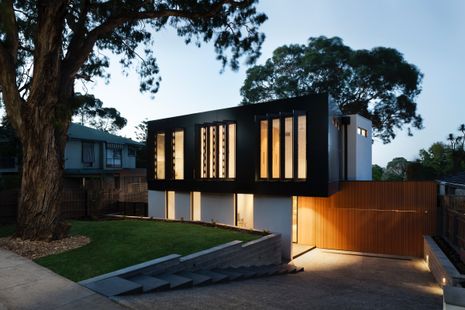|
|
|
|
|
New Loan Commitments Up 5%
The latest ABS lending indicators show a 4.8% rise in new loan commitments for housing to $24.9 billion in May 2023.
New owner-occupier loan commitments rose 4%, while new investor loan commitments rose 6.2%.
The value of owner-occupier commitments is 17% higher than February 2020, while the number is 0.2% lower.
First home buyer numbers are also up, with a 2.7% rise following a 0.3% fall in April.
Refinancing is on the up too, with the value of new loan refinances between lenders reaching a record high of $14.1 billion.
Investors were concentrated on the East Coast, with the data showing the value of new loan commitments for investor housing was up 8.5% in New South Wales, up 9% in Victoria, up 17.5% in South Australia, up 4.5% in Queensland, up 33.3% in ACT, up 33.2% in Northern Territory, and up 7.2% in Tasmania; Western Australia recorded a fall of 0.9%.
|
|
|
|
|
|
May Building Approvals Up 20.6%
The ABS has reported a 20.6% rise in building approvals for May in Australia.
“The rise in total dwellings was driven by the more volatile dwellings excluding houses
series, which rose 59.4%. This increase reflected a large number of apartment developments approved in New South Wales in May,” said ABS head of construction statistics, Daniel Rossi.
Private sector house approvals rose slightly (0.9%) after a 3.0% decline in April. Additionally, non-residential building was up 24.3%. These positive results illustrate a renewed sense of optimism and economic optimism across the country.
The trend is set to continue with the construction sector expecting to see further growth in the coming months. Investment in new homes, apartments, and commercial buildings is expected to help boost the national economy.
With the right policies in place, the Australian building and construction sector could continue.
|
|
|
|
|
|
FOMO Is Back In Market
The Australian property market is showing strong signs of a rebound with lenders and buyers alike taking advantage of the rising prices.
Data from the Australian Bureau of Statistics show that owner-occupiers and investors drove the surge in June, with respective rises of 4.5% and 6.2%.
Experts are attributing this to what is known as ‘FOMO’ (fear of missing out) with buyers wanting to get in before prices continue to rise, citing significant price drops which didn’t occur.
This rise is despite borrowing capacities being cut by a third with the Reserve Bank introducing 12 rises in the past year.
Auction clearance rates have also remained unseasonably strong, with PropTrack recording about 70 per cent of homes selling under the hammer in Sydney and Melbourne.
One factor helping younger buyers is the support coming from their parents, with many willing to support a favourable purchase.
|
|
|
|
|
|
Downsizing Leads To Upsizing
More and more Australians are choosing to downsize in order to upsize their retirement.
Up to 58,000 Australians have taken advantage of the tax-free 'downsizer' scheme, selling their principal place of residence and contributing the proceeds to their super.
The ATO report showed over the period from July 2018 to April 2023, the overall contribution amounted to $14.5bn, with an average of $250,000 each.
Downsizing a family home to free up extra money for retirement under the downsizer scheme has been around for a few years.
The scheme was recently amended to open eligibility to ages 60 and above. Those interested must meet the ATO's criteria, such as a minimum of 10 years ownership of the home prior to sale.
It enables Australians to deposit up to $300,000, meaning couples can deposit a total of $600,000. Contributions are separate from non-concessional and attract no tax when money is withdrawn during pension mode. |
|
|
|
|
|
Rent Freeze Not The Answer
Australia’s 2.2 million real estate investors have been under fire lately, but those who liken all landlords to the devil should be careful what they wish for.
Lumping landlords altogether is just like saying every renter is a tenant from hell who smashes walls and soils bedrooms.
Australia is experiencing a housing crisis and a blanket rent freeze isn't the answer.
The majority of landlords are trying to do the right thing; covering the rising costs of servicing their loans and fostering long term tenancy agreements. Some have even reduced rent or gone beyond to support tenants during the pandemic.
The Greens’ have recently called for “a two-year emergency rent freeze”. The Greens proposal could be disastrous for investors if they can't keep up with their large mortgages, leading to fewer properties available for rent.
Good landlords with heart should be praised over those trying to get rich quick.
|
|
|
|
|
Quote Of The Week
“There were a lot of people sitting on their hands last year watching and waiting and expecting that big massive price drop which didn’t happen.”
Ray White Chief Economist Nerida Conisbee on current FOMO in market
|
|
|
|
|
|
|
|
|
|










